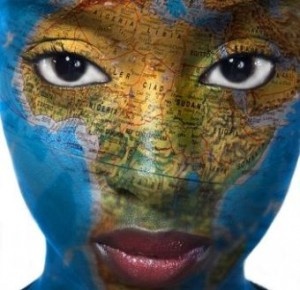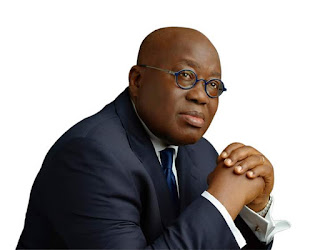Women; a beacon of hope.

In Ghana, women constitute over 50% of the population, yet out of the 275 members of parliament, only 29 of them are women. The marginal representation of female leaders is common in many organizations across the country. A country like ours cannot develop when over 50% of its population do not have equitable number of representative of leadership positions in various sectors of the economy. Women are needed to be the voices to promulgate the plights and needs of women in their communities, to propose policies that favor women, and to contribute in the building of our economy. Gender inequality sprouts from a lot of factors and religion seems to be one of the major.
Ghana; like most African countries, is a very religious country of which Islam and Christianity is the most common of the religious affiliations. These two religions clearly spell out the role of women; to be submissive, to be busy at home and to follow her husband's leadership. This law is basically followed and encouraged by leaders of religious groups which are mostly men. The men always occupy the highest positions and the women do well to follow as clearly defined. It goes ahead to influence the way and manner that children are groomed based on their sex. Boys learn to explore, not greatly supervised because they are generally thought to be naughty and adventurous. Egoism becomes a part of them because they are nurtured to think of themselves as the head. It is therefore not surprising that men take up leadership positions with little or no challenge which is a hard thing for women to do because they are brought differently. Since most men leave parenting and management of the house in the court of women, girls, before anything, establish from their upbringing, while watching their mothers take up all of the domestic work, that it is women who keep the home.
Gradually as they grow, they learn from a lineup, values and skills that a woman ought to acquire which includes cleaning, washing, among other things of which cooking is the most important. A woman also faces the societal pressure of getting married and bearing forth children. A woman who doesn't achieve this at a certain age is considered a failure and faces stigma in society irrespective of other achievement of her's or personal goals in life. Infertile women are rejected by their families and husbands of such women are permitted to have extra marital affairs in order to have children. Many women therefore prioritize on their marriage and child birth, so much that they factor these two in every decision they make in their lives, which stifles them from excelling in their fields and capabilities. Many Ghanaian women limit themselves to their home, they treasure their home because they have accepted the 'role' that they came to meet, the role that has been assigned to them by society and religion; to get married, bear children and keep the home. To leave the management of the affairs of the society and the country to the men, it is their job not women's. Because of this analogy, women politicians who rise up to certain ranks even, find it difficult to get supporters from their fellow women.
Another factor of gender inequality is cultural activities. Often times women are victimized in cultural practices such as the widowhood rites, early marriage and Female Genital mutilation. Many Ghanaian cultures portray women as objects. A case in point is the trokosi system where a virgin on her first menstrual cycle is given to a priest as an atonement of a sin committed by a family member. In FGM, women circumcised simply become objects for sexual gratification for men because they are denied of sexual pleasures. In widowhood rites, a widow is blamed and punished for the death of her husband. However, there has never been an incident of a man being punished or blamed for the death of his wife. How does a society build strong and bold women who wouldn't think twice about taking up leadership positions or speaking up for themselves when they live in fear and anticipation of any trouble that may befall them? How do girls realize their worth when they aren't taught to pursue knowledge through education but rather are ignorantly sold into marriages?
'This is a man's world', James Brown puts it, but I say this is a people's world, a human world, where all humans, should be treated with dignity and respect and should never, be discriminated because of their sex. if Ghana is going to develop then all hands of citizens have to be on deck to eradicate Gender inequality. As stakeholders and organizations play their part, the government must also make a conscious effort to enforce laws which aim at putting an end to inhuman acts against women such as they widowhood rites and the Female Genital Mutilation (F.G.M). The media should monitor the content and images they display and produce to consumers since almost everything they produce in recent times is linked with sexual objectification of women, in order to make their products sell. Radio and TV stations can host discussions about the relevance of Gender equality and educate the public on how to achieve this goal. Seminars and conferences should be held, in schools and churches and workplaces. People must be made aware, Of The fight against Gender inequality.
Ghana can achieve economic stability, many Of The unrelenting issues faced in the country can be amended, but not until women are given as much deserved right and privileges instead of being considered as redundant.
'Gone are the days when women were meant for the kitchen.' I say that this is the biggest lie we have ever been told. What society has done, is to simply give women access to many things that they were denied of; education, work, and many others. But the system of women meant for the kitchen still reigns, whereby a woman can do whatever she wants to do, but she must not forget her role, the one role that surpasses all others; her role in the home!
Article by: Boakye Aninwaa (Articles-Gh)



Comments
Post a Comment